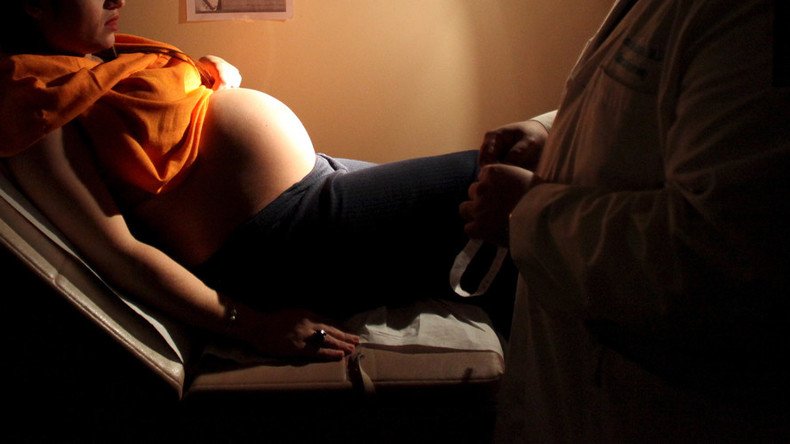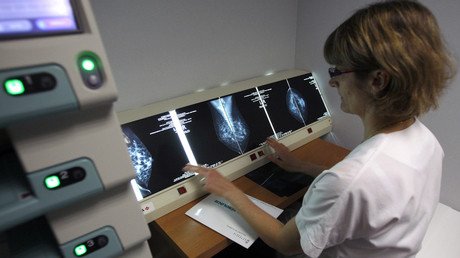Cancer drug given to pregnant women may affect unborn daughters' fertility - study

A chemotherapy drug prescribed to moms-to-be fighting cancer may reduce the fertility of their unborn daughters, researchers say. Their findings result from the first study into the long-term effects of chemotherapy during pregnancy.
“This is an issue that has not been explored until now,” the study's lead researcher, Professor Norah Spears, from Edinburgh University's Center for Integrative Physiology, said in a statement. Spears said previous studies, looking at chemotherapy drugs' effects during pregnancy, focused exclusively on the immediate effects, such as “increased miscarriage rates or severe foetal abnormalities.
A team of scientists at Edinburgh University have found that a drug called etoposide can damage the development of ovarian tissue in mice. Given that 95 percent of their genes are the same as those of humans, this could have the same impact on humans, researchers say.
Around one in 1,000 pregnant women are diagnosed with cancer.
Etoposide use involves a low risk of miscarriage and birth defects, and is considered safe for use in the second and third trimester of pregnancy. Little is known, however, about the longer-term effects of the drug on the unborn baby, researchers say.
"A woman's reproductive lifespan is determined before birth, while the ovaries are developing in the womb. The second trimester of pregnancy is particularly important as this is when female germ cells form follicles which will determine how many eggs a woman will be able to release in her lifetime," Spears said.
Scientists at the University of Edinburgh studied the effects of etoposide treatment on the development of mouse ovary tissue grown in a lab. They found that treatment before the follicles had developed "wiped out up to 90 percent of the germ cells, even at doses that are low relative to those given to patients," they said on the university's website.
"If the results we have seen in these mouse studies are replicated in human tissue, it could mean that girls born to mums who are taking etoposide during pregnancy have a reduced fertility window," Spears noted.
The research has been welcomed by a number of experts.
“Cancer during pregnancy is rare, however there is very little research regarding cancer in pregnancy," said Jacque Gerrard, director for England at the Royal College of Midwives. "This study to examine the long term effects of chemotherapy during pregnancy is long overdue but we very much welcome the results."
"This is the first study to examine the long-term effects of chemotherapy during pregnancy and the results suggests that etoposide, which has been proven safe during the second and third trimesters of pregnancy, may have an impact on the finite store of eggs being created within their daughter's ovaries whilst still in the womb,” said Professor Adam Balen, chairman of the British Fertility Society (BFS) and spokesman for the Royal College of Obstetricians and Gynaecologists (RCOG), according to the Telegraph.
"While this is important information for pregnant women who may need chemotherapy, it is too early to say the degree to which this study carried out in mice might relate to humans.
"We must also weigh any benefits of cancer treatment against these potential risks. These decisions should be made jointly between a woman and her specialist healthcare team."
The study has been published in the journal BMC Cancer under the title ‘Etoposide damages female germ cells in the developing ovary’.














